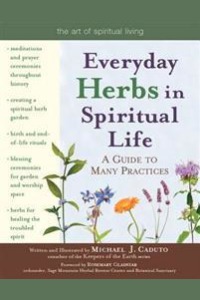
Liknande böcker
Ew Osanyin
Bok av Baba Jaha
This book was created to provide a fully-illustrated (photographs) reference essential to spiritual practitioners and scholars who desire a compendium of plants, herbs, and trees utilized in the practice of Ifá-Orisha. This book was created so members of the greater spiritual community can have a useful guide for their reference library to assist in their spiritual practice and study. The book is useful for practitioners and students of Ifá, Orisha'Ifa, Santería, Afa, Vodou, Candomble, Palo, Kumina, Obeah, Quimbanda, Trinidad Orisha, Spiritual Baptist, Umbanda, Abakuá, 21 Divisiones, Winti, and Nkisi; as well as other nature-based and esoteric traditions.
This reference focuses on plants used in Ifá-Orisha spiritual practices in the Americas, but many of these plants can also be found in Africa, tropical and temperate Asia, and Oceania.
Each herb is presented in full color along with its Scientific Name, Spanish Name, and Lukumi/Yoruba name. There is also a Spanish - Scientific Name Glossary; and a Yoruba/Lukumi - Scientific Name Glossary.
Ewé Osanyin is printed in full color on high-quality paper. It was designed to showcase the beauty of the plant world, making it a stunning coffee table book.
Baba Jaha is a practicing Babalawo and Bokor. He was initiated and trained in Cuba and West Africa in Ifá, Afa, and Vodou. He is also an Ivy-League educated expert in cultural studies. Baba Jaha is the director of a research organization in Japan which provides its clients advice and solutions based utilizing indigenous African spiritual-intellectual thought systems as a means of restoring balance and sustainability to families, communities, organizations, and nations. He is a Delegate to the G7/8 Religious Leaders Summit and is a Member of the International Association of Religious Freedom.
Baba Jaha is the author of Essential Ifa Reference; How to Rule the World: Lessons of Conquest for the Modern Prince; and co-author of Omowali: The Child Return Home - Reconnecting Our Children with Their True Culture; and Preserving Cultural Integrity in the Age of Globalization.







